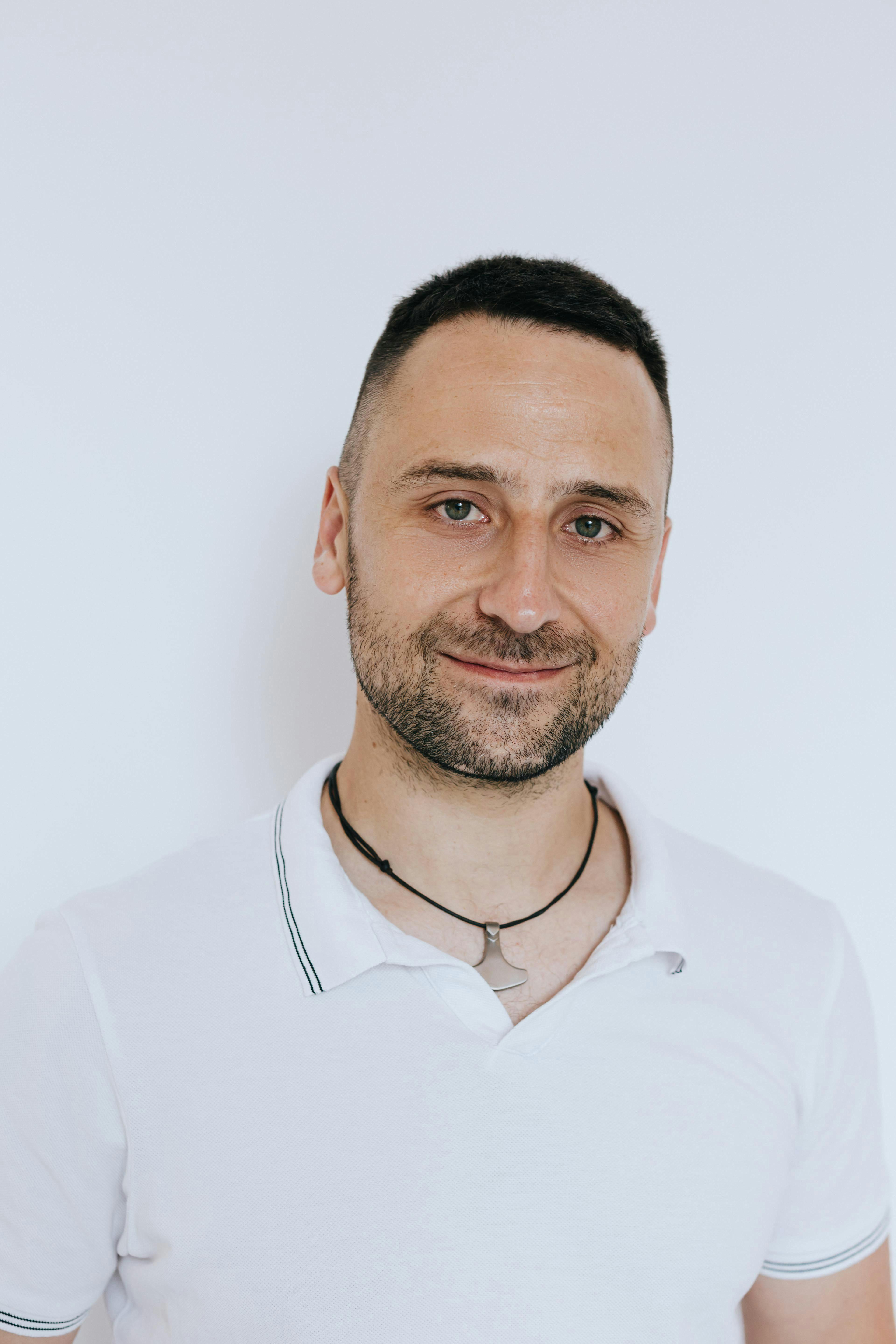How We Hire?
Curious, how do we go about our hiring process and what are the key steps we take to identify and attract top talent to our organization? In this article, we will outline our approach and shed light on the strategies we employ to ensure we find the best candidates for our team.

Jiří Kostov
Head of HR
14 May 2023
9 min read

Hiring in Moravio
Moravio is a software development company. So as you can suggest, we are looking for software developers and other roles related with software development mostly - QAs, Product Owners, DevOps etc.
When and where does it start
Our company is focusing on custom development software and project rescue. The word custom is very important. Why? Because we have to look for people with special mindset (agile) and knowledge - they can switch lightly from one project to another and it goes also for the technology.
Everything starts with sales and projects forecast. If we know what for a project will come (or is near to sign up) we start to look for the right people if they are missing in the team that will work on this project.
Hiring process
The hiring process is similar to processes in other companies. But not the interview. I will write about that later. Hiring process can have from 5 to X steps. We are using a 5 steps process.
They are:
- Opening the position
- Screening the Applicants
- Interviewing the Candidates
- Selecting the Best
- Making the Offer
Tools we use to hire people
To find the right people we use social platforms, websites and job portals. The main place where you can find who are we looking for is our website moravio.com. It is specifically our career page. Another place is Linked In where we post an open position which is most actual.
We also used Indeed.com, Jobs.cz and other websites where we put the open positions. Also PPC advertisement is helping a lot to get in touch with future employees or contractors. In our company we have also referral program for our employees. So if you know about somebody who will be suitable for an open position, you give us recommendation, the person will be hired and stays after probation period, the employee will get a referral bonus depending what position and what seniority it was. It is true, that good and quality people recommend again people that are similar to them.
Steps of the hiring process
Now we can take a closer look at the hiring processes in Moravio. As I wrote before, it is quite usual process.
Opening the position
This is the first step in the hiring process, where we as a company identify a need for a new employee or contractor and create a job posting to attract potential candidates. It involvses specifying the job duties, required qualifications and you will also get the information what you can await from our side (benefits, bonuses, etc.)
Screening the applicants
After the job posting has been made,we mostly receive a large number of applications from interested candidates. The screening process involves reviewing these applications and narrowing down the pool of candidates to a more manageable number based on their qualifications and fit for the role. This involves reviewing resumes and cover letters. Sometimes also conducting initial phone screens to assess the candidates' fit for the role.
Interviewing the candidates
The next step in the hiring process is to invite a select group of candidates for an in-person or virtual interview. By us you can await 3 interview rounds.
1. Cultural fit - this is normaly a second round interview in other companies, but for us is the cultural fit more important than the “technical” skill of a candidate. On the first round I am trying to find out if a candidate is a fit to our company cultur and if the candidate is the right one for the position. We are also speaking about the salary. If I suggest the candidate is a fit and he/she is a developer, I will ask him/her to do a “homework” that I can pass to our iCTO or senior developer who will evaluate it and tell me if we can go for the second round - the Technical round.
2. Technical round - in this round one of our senior developers or iCTO will take a part on the interview. We will go through the “homework” and talk about the process how was it done, what we liked on in it, what we didn’t. It is a discussion. The interviewer will also ask technical questions to see how the candidate reacts. After this round we do another evaluation and if the candidate passes, he goes to the last round. An interview with our CEO Lukáš Greň.
3. Final round - Our CEO likes to meet all the people we are hiring and also he has the final word so the final round is with him. I can’t name this interview. It is impossible. But you can imagine something between cultural fit, technical interview and a great chat with some logical questions on the candidate. After this interview we know if the candidat is the right one for joining us.
Selecting the best
After the interviews have been conducted, the company will review the candidates and decide who is the best fit for the role. This may involve considering the candidates' qualifications, experience, and fit for the company culture.
Making the offer
Once the company has decided on the top candidate, we will make a job offer to that person (or more persons). The offer will typically include details such as the salary, benefits, and terms of employment. After we send the offer we just wait if it will be agreed or not.
Hiring Developers
Hiring developers is a critical aspect of building and maintaining a successful software development team. However, hiring developers can be quite different from hiring in other industries, and it's important to understand the unique factors that come into play when looking for a software developer.
In our company we are looking mostly for all types of people who are in the field of software development. We are mostly hiring fullstack developers but it is not a dogma. If you are looking for developers you have to take in mind this aspects.
Hiring a full-stack developer is a great way to bring in a person who knows front-end and back-end development. You should look for a developer who has knowledge of a web stack like MERN (MongoDB, Express.js, React.js, and Node.js). The MERN stack is widely used and allows for seamless integration between the front-end and back-end components of a web application. With a MERN stack developer, you can ensure that your project is built using modern and efficient technologies, enabling you to create dynamic and interactive web applications. Additionally, their expertise in this stack will provide the necessary foundation to handle tasks such as data storage, server-side logic, and user interface development, making them an invaluable asset to your development team.
When hiring a Node.js developer, for example, it's important to look for someone with a strong understanding of JavaScript, as well as experience working with Node.js and its associated tools and frameworks. It's also important to look for someone who is comfortable working in a fast-paced, constantly-changing environment, as Node.js is a relatively new technology that is still evolving.
Hiring a mobile app developer requires similar skills as hiring Node.js developer but with additional knowledge of developing mobile app specifically, you want to look for someone who has experience with mobile app development for multiple platforms(iOs,Android) and can work with different languages and framework.
Hiring a Laravel developer requires someone with knowledge of PHP, the language Laravel is written in, and experience working with the Laravel framework. In addition, it's important to look for someone who is familiar with modern development practices such as version control, testing, and continuous integration.
Hiring a React Native developer also requires skills mentioned above along with knowledge of React and React Native, and has experience working with React Native and its associated tools and libraries.
Hiring a back-end developer requires someone with a strong understanding of server-side programming, databases, and web architecture. They should be familiar with different languages and frameworks, such as Node.js, Ruby on Rails, and Django, and should be able to work with different database technologies, such as MySQL, PostgreSQL, and MongoDB.
Hiring a front-end developer requires someone with a strong understanding of web development, including HTML, CSS, and JavaScript. This developer should have experience with front-end libraries and frameworks like React, Angular and have a good knowledge of responsive design.
The hiring process for a Vue.js developer is similar to the process for hiring a React or Angular developer. You should look for someone who has a good understanding of JavaScript and has experience working with Vue.js and its associated libraries and frameworks.
Hiring an app developer requires a combination of skills that are required for web development and mobile app development. They should have experience working with different languages and frameworks and be comfortable working with multiple platforms.
Hiring a software developer, in general, requires someone who is able to solve complex problems, think critically, and work well in a team. They should be comfortable with learning new technologies and should be able to work in an environment where things are constantly changing.
In conclusion, hiring a developer is a complex process, and it's important to understand the unique skills and characteristics required for different types of developers. Whether you're looking for a front-end developer, a back-end developer, or a full-stack developer, it's important to look for someone who has the skills and experience required to do the job well.
How to know if hiring manager wants you?
That’s a good question. Hiring is about people on both sides of the table. And if you are not a robot or an AI, you will probably have this feeling in guts if the company (hiring manager) wants zou you or no. If it will be no, no worries. Ask always for the feedback and look forward for another challenge.